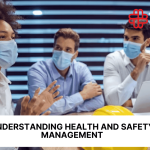Emergencies can occur anytime, disrupting hospital functions and threatening patient safety. This course teaches healthcare professionals how to prepare, respond, and recover from emergencies in a structured, evidence-based way. From small clinics to large hospitals, having a clear response strategy ensures safety, coordination, and continuity of care.
Through practical training, participants will learn to develop customized emergency plans, lead team responses, and comply with global safety standards, ensuring their institutions are resilient in any crisis.
Participants will be able to:
- Explain the framework for emergency management in healthcare.
- Prepare effective response strategies for a variety of hazards.
- Apply infection prevention during high-risk events.
- Build staff readiness through simulation and drills.
- Communicate effectively in high-stress situations.
- Design continuity plans to sustain patient care.
This course is designed for:
- Emergency managers and disaster planners.
- Physicians, nurses, and healthcare teams.
- Facility and operations managers.
- Infection prevention teams.
- Clinical educators and trainers.
- Health and safety officers.
The course includes instructor-led lessons, simplified emergency response models, real crisis debrief case studies, and collaborative planning tools. Downloadable SOP templates, drills checklists, and emergency communication scripts are provided to support hands-on learning.
Day 5 of each course is reserved for a Q&A session, which may occur off-site. For 10-day courses, this also applies to day 10
Section 1: Emergency Management in Healthcare Systems
- Four phases of emergency management: Mitigation, Preparedness, Response, Recovery.
- Regulatory frameworks: JCI, OSHA, CDC.
- Key partners and communication networks.
- Understanding healthcare’s critical role in disasters.
Section 2: Facility Preparedness Planning
- Facility layout planning and hazard zones.
- Access and security during emergencies.
- Establishing emergency operation centers (EOCs).
- Stockpiling and managing essential supplies.
Section 3: Emergency Communication Systems
- Creating internal and external communication protocols.
- Crisis messaging for staff and patients.
- Utilizing tech tools: alarms, alerts, telemedicine.
- Dealing with media and public inquiries.
Section 4: Public Health and Community Coordination
- Integrating with emergency services and public health.
- Regional disaster plans and response networks.
- Volunteer and NGO coordination.
- Managing surge capacity and mobile units.
Section 5: Emergency Response Scenarios
- Earthquakes and power failures.
- Fire and chemical hazard response.
- Infectious disease response (COVID-19 case study).
- Violence and active shooter protocols.
Section 6: Post-Emergency Recovery
- Psychological support for staff and patients.
- Damage assessment and repair planning.
- Documentation and incident reporting.
- Revising plans after real events.
Section 7: Building a Resilient Healthcare System
- Investing in emergency infrastructure.
- Staff retention and mental well-being.
- Ongoing training and knowledge sharing.
- Leadership in uncertain situations.
Upon successful completion of this training course, delegates will be awarded a Holistique Training Certificate of Completion. For those who attend and complete the online training course, a Holistique Training e-Certificate will be provided.
Holistique Training Certificates are accredited by the British Accreditation Council (BAC) and The CPD Certification Service (CPD), and are certified under ISO 9001, ISO 21001, and ISO 29993 standards.
CPD credits for this course are granted by our Certificates and will be reflected on the Holistique Training Certificate of Completion. In accordance with the standards of The CPD Certification Service, one CPD credit is awarded per hour of course attendance. A maximum of 50 CPD credits can be claimed for any single course we currently offer.
- Course Code IND5 - 174
- Course Format Classroom, Online,
- Duration 5 days









